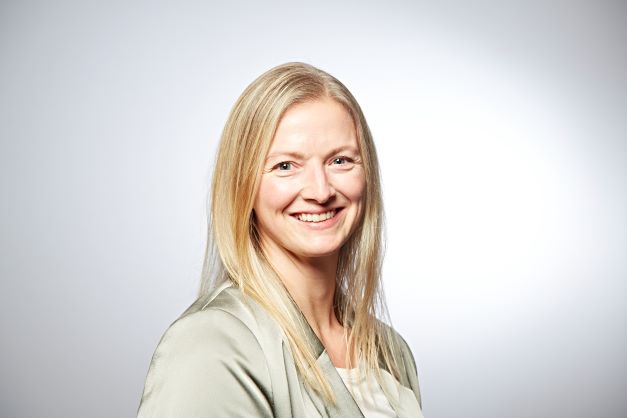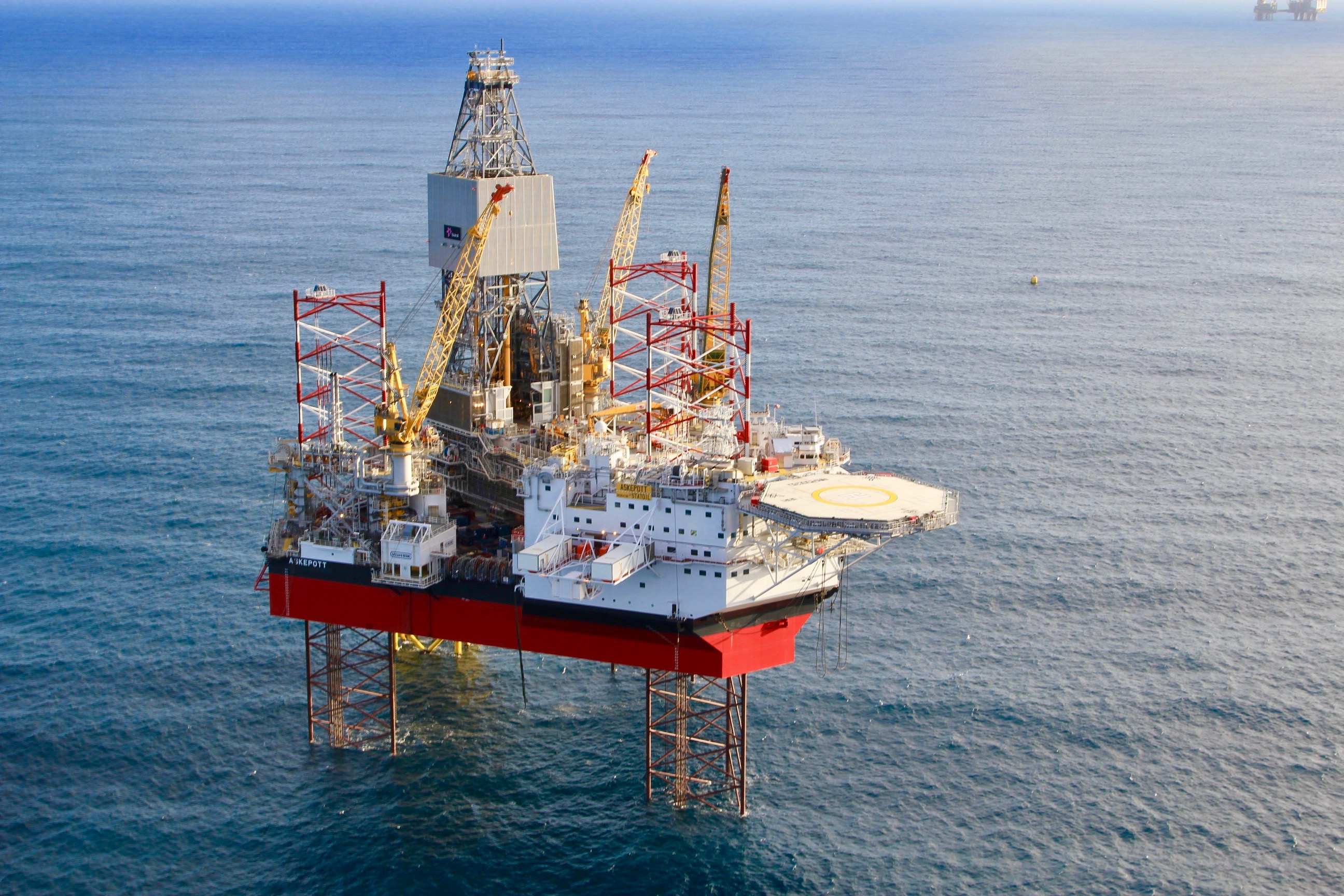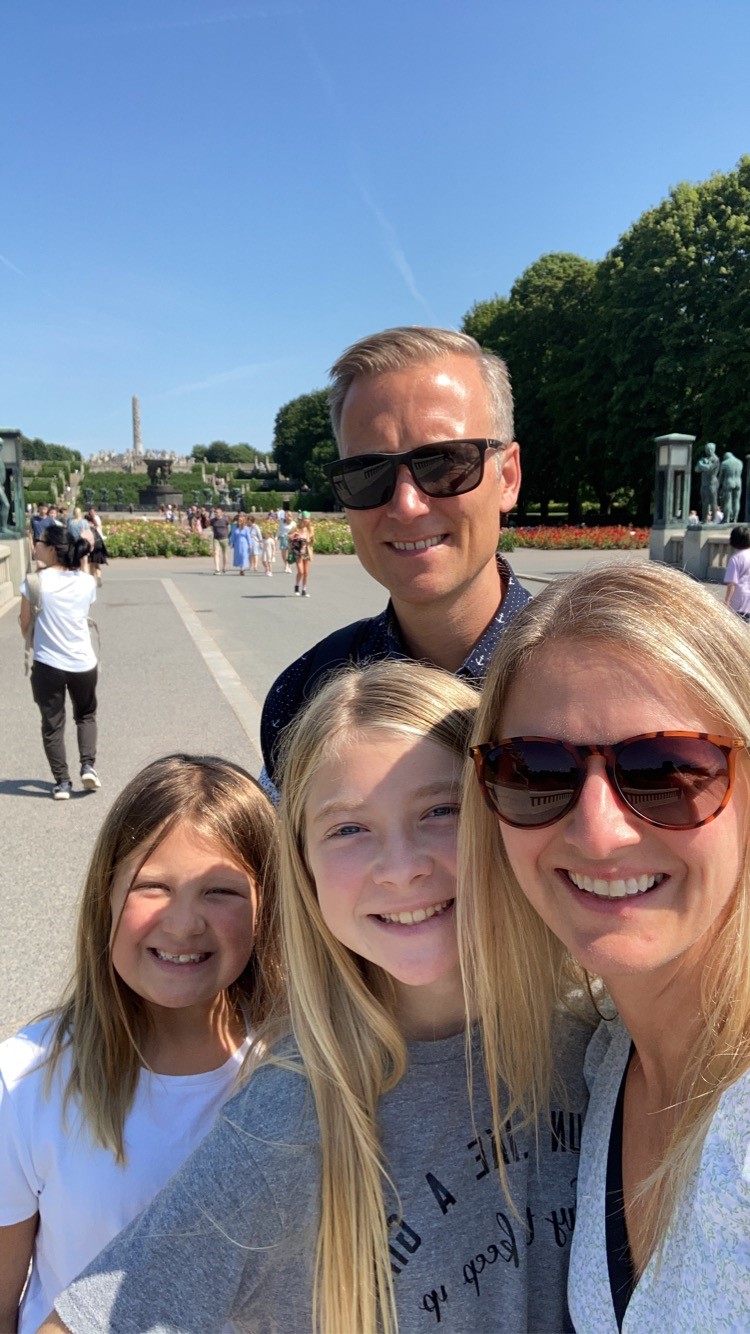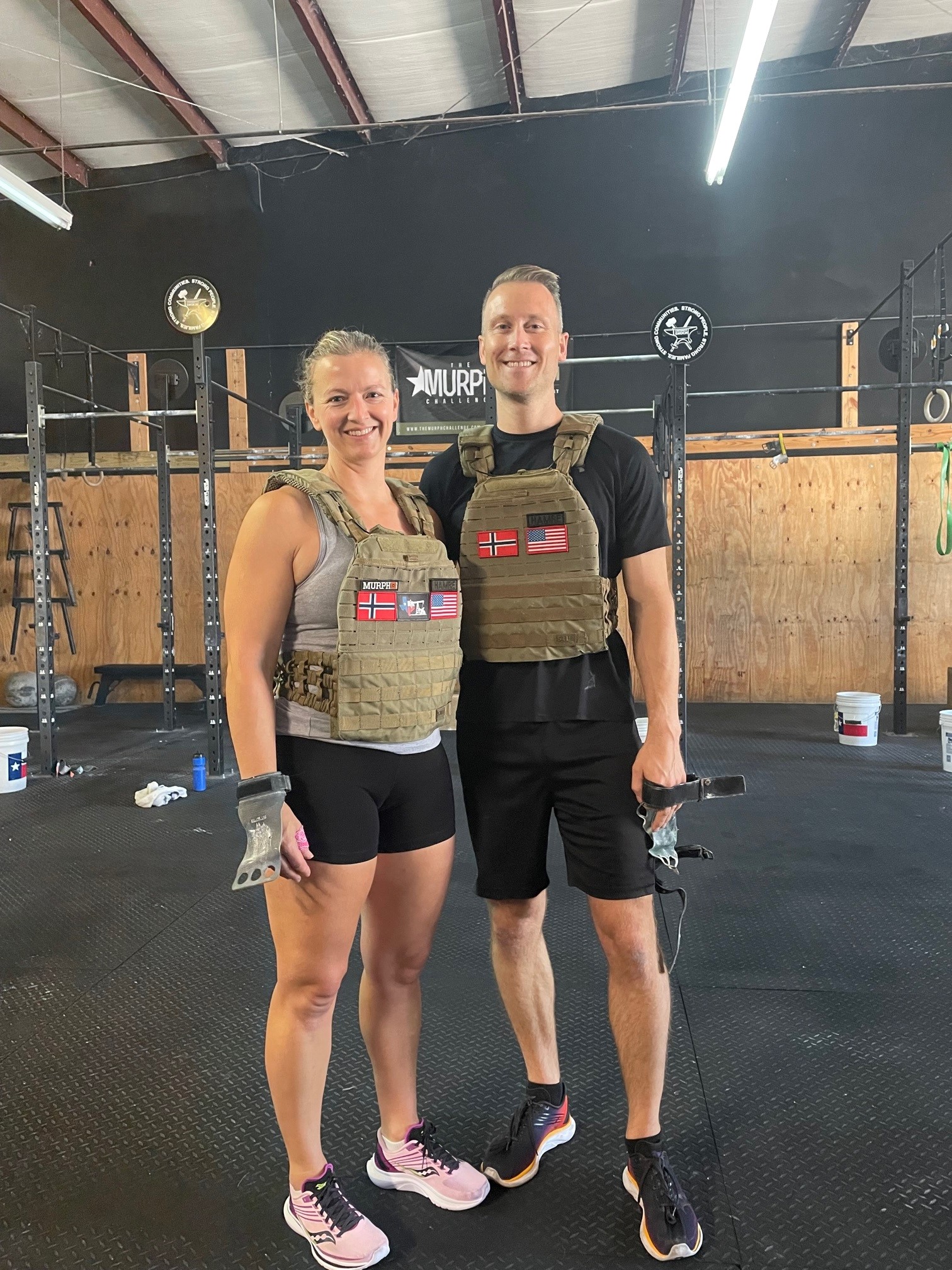Meet the product line director who came in from the cold offshore rigs of Norway with a fresh take on everything.
Irene Brekne Hamre likes to leap into the unknown. Four months into her latest role, as Baker Hughes’ Product Line Director for Completions and Well Interventions in North America Offshore, she disarmingly says, “Everyone here is a subject matter expert, they know completions in and out — except for me.” And that’s the advantage she has channeled in so many roles over 18 years at Baker Hughes, where she started as a mud engineer in her 20s.
When Hamre graduated as a Petroleum Engineer from the University of Stavanger in 2003, she says, “I really wanted to go work offshore. I wanted to go and see because I felt like that gives you a different perspective on what’s at the core of oil and gas.
In almost two years on the rigs, she was often the only female engineer on board (she says Baker Hughes had five or six women employed as mud engineers at the time, but they were hardly ever on duty together). She reveled in observing the tools firsthand and being responsible for how they responded to the “mud”, or fluids, that cool and lubricate the drill bits, provide hydrostatic pressure on the bore walls to contain reservoir fluids, and are applied to other essential tasks. She says the rig crew members became like a second family and she enjoyed the camaraderie and trust that developed in the isolated and physically challenging offshore rig setting.

Hamre subsequently led several specific Baker Hughes projects, brought a fresh approach to managing Health Safety and Environment (HSE) for almost three years starting in 2014, and enjoyed great success as a Key Account Manager. She believes her breadth of experience within the company gives her increased “credibility with people on the front line”. She explains, ''When you have experienced various work environments yourself, it gives you a much better perspective and ability to understand the big picture. To be able to say, 'I was in your shoes', can often help open a deeper discussion.'' She wouldn’t go so far as to say that employees trust her more because of her broad experience… On one occasion they trusted her less.
Revolutionizing offshore drilling
The leap she undertook as Project Manager responsible for delivering on Equinor’s multi-billion-dollar integrated drilling and well services tender in 2017, was into totally uncharted waters.
One of the key briefs for Baker Hughes was to reorganize the roles of its employees on Equinor’s North Sea Shelf rigs. The aim was to create multi-skilled roles to carry out critical offshore tasks, while tasks that didn’t need to be physically performed on the rig transitioned to the Remote Operations Center (iROC) onshore in Stavanger, one of Norway’s major staging points for rig servicing. The intention was not to shed employees, but to minimize offshore risks and costs, bring more operations onshore, and use automation and AI-assisted remote drilling tools to drive repeatable successful well delivery.
In negotiations with employees about the reorganization, she says her offshore cred turned out to be both good and bad. “People would say, ‘You know how it is.’ And I’d say, ‘I know how it is, and that’s exactly why I’m challenging the status quo.’ On the rig, there are peaks and troughs of activity and there are operations where you wait, trying to get time to pass”. She knew there was an opportunity for some roles to learn new skills and shift things around.
For many employees the successful implementation of Integrated Operations Level 3 (IO3) was positively life-changing, and Equinor’s demand for the new system that was intended to help ensure ongoing competitiveness of the North Sea Shelf energy production, provided a proof point for deployment of remote technology in other markets. Strategically planned and implemented, the relocation of significant numbers of personnel onshore had the effect of better utilizing workforce skills, minimizing employee exposure to HSE risks; and reducing costs and logistics, and ultimately the carbon footprint involved in well construction.
As Global Service Delivery Leader for Integrated Solutions, Hamre subsequently helped implement this model in Saudi Arabia, and for rigs in a UK offshore development, she says, “If we hadn’t been able to implement IO3 for the company in the UK, the rigs wouldn’t have been able to operate due to Personnel on Board (POB) constraints.”

Similarly, Hamre’s groundbreaking work in changing the way Baker Hughes operates using the iROC in Stavanger, and all the labor-force, and union discussions that went with it, enabled many operations to continue during the COVID-19 pandemic restrictions. “Never have we seen so much remote drilling, because it was the only way to continue.”
But she adds that there are still barriers to widespread implementation of digitally enabled remote operations. These include in some cases the limitations of infrastructure: “You might have very small, manned rigs that don’t necessarily have remote operation setups; and some places in the world don’t have connectivity, so they would have to use satellite links, which have different criteria for enabling remote applications,” says Hamre.
Another major learning from the project was on the benefits of clear communication when instituting new ways of working. The biggest barrier to “realizing what we can do with the tools and the people we have”, says Hamre, remains human nature and the tendency to “hold on to what we know”.
Delivering Equinor’s implementation of IO3 illustrated that good change management relies on next-level communication which “involves people in the change”. She says, “You think you communicate”, but if your communications aren’t 100% right the first time, “people will make up their own views and communicate them, and that’s where you get rumors and wrong assumptions, and it takes a lot of time and effort to correct”. Ultimately, she says, “It’s rewarding to see what you can achieve by influencing instead of imposing or exercising power. Embracing new ways of working, such as IO3, is just beginning.”

New adventures in CWI
In her new role as leader of Completions and Well Interventions (CWI) for North America region Hamre is attuned to the fact that her team's knowledge is vital to deliver safe, advanced well completions and interventions in different geological and climatic conditions that range from Arctic Canada and Alaska to the hurricane-whipped Gulf of Mexico and the tropical Caribbean.
She's on a steep learning curve, but Hamre says she’ll never be an expert in CWI. This invites her trusted expert team to re-examine how they approach the business. “It’s something different for them too, because they now have a leader without long-held domain experience,” she says.
She also brings a mandate to enable Baker Hughes’ new simplified, two-segment organizational structure —Industrial & Energy Technology (IET) and Oilfield Services and Equipment (OFSE) — which positions CWI for growth.
“Completions and Interventions is now working alongside Measurement, for example, and these product lines are symbiotic, enabling us to offer more comprehensive solutions,” says Hamre. The integration also introduces products designed to support carbon emissions reductions to market in a more natural and effective way — in tandem with the point of well completion or intervention.

How to wake up positive every day
“I feel like I have 30 burning actions on my list of what I want to achieve,” says Hamre, who takes time out from executive-level mental gymnastics to compete in the physical world of CrossFit. Although she’s “not a morning person”, getting up at 4.25am to be at multi-disciplinary gym sessions is part of maintaining work-life balance, which Hamre says, “makes me happy”. Family life in Houston with husband Odd, a logistics expert, and their two young daughters Iben and Mari, also flicks her mental switch, so that “I wake up positive” each day, with “the energy to search for opportunities”.
In conversations with customers, she finds confirmation that “everyone wants to deliver more with less”, but her experience and empathy compel her to “bring in something more for people” in the industry. “Field specialists are basically always ‘on’, for example. How do we optimize with remote operations to help them be more successful? To help relieve some of the load on them?”
Hamre says she feels as if she’s gone from project management roles, which are more “outside looking in”, to being responsible for the “inside” as a business segment owner. “I would say this is the coolest job I’ve ever had. It’s overwhelming, but it’s great because I really thrive on that sense of “I don’t know a lot about this, but how hard can it be?”
Energy Forward Stories
Sign up to stay up to date on the latest innovations and people shaping the future of our industry.





